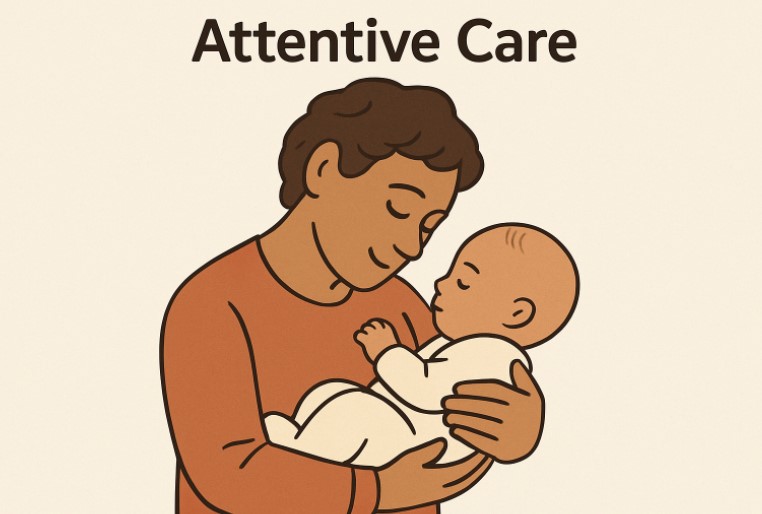Understanding Infant Emotional Development
Infancy is a profound period of growth—not only physically, but also emotionally. From the very beginning, babies experience a complex array of emotions that lay the foundation for resilience and social connection throughout life. Research shows that these early emotional responses are the precursors of mental health and the ability to form healthy relationships.
Parents and caregivers play a central role in interpreting and nurturing these feelings. Providing attentive care, such as exploring infant care programs Winnetka, CA, helps to ensure that infants feel safe, observed, and valued. This sense of security fosters trust and emotional balance, extending well into childhood and beyond.
The Role of Responsive Parenting
Responsive parenting means closely observing your baby’s signals—like coos, cries, and facial expressions—and responding promptly and lovingly. Current scientific studies demonstrate that infants raised in a responsive environment show healthier patterns of brain activity, particularly in areas associated with emotion and social understanding. These children often develop stronger empathy and coping skills, experiencing less anxiety and more confidence as they explore the world.
By tuning in to your child’s cues, you are sending the message that their emotions matter and that they have someone they can trust for comfort and support. This nurturing relationship helps build strong emotional regulation skills as your child grows.
Building a Secure Attachment
Secure attachment is established when babies know their caregivers will reliably meet their needs with warmth and sensitivity. This foundational bond reassures infants that they are safe to explore their environment and try new things, always knowing that comfort and safety are close by. Consistent, empathetic care helps raise confident, resilient children who are better equipped to navigate the emotional ups and downs of growing up.
Practical Ways to Foster Emotional Growth
- Consistent Routines: Establishing predictable routines—like regular naps, feeding times, and bedtime—helps infants anticipate what comes next. This creates a sense of safety and stability in an otherwise unpredictable world.
- Affectionate Interactions: Simple actions such as cuddling, holding, and making adoring eye contact reinforce the feeling of being loved. Touch and attention are essential nutrients for your baby’s self-worth and emotional security.
- Verbal Engagement: Talk to your baby about their feelings, your activities, and the world around you. Even before they can speak, this verbal engagement helps foster an understanding of emotions and relationships.
- Encouraging Exploration: Provide safe opportunities for your baby to investigate their surroundings under your supervision. Allowing your child to reach, grasp, and observe supports curiosity and autonomy while trusting that you are close by.
The positive impact of responsive routines and nurturing interactions has been demonstrated by experts in child development and highlighted in resources such as Zero to Three, a national leader in early childhood development.
The Impact of Early Experiences on Brain Development
Every meaningful interaction shapes your infant’s rapidly growing brain. Research published by The New York Times highlights that positive early experiences strengthen neural connections linked to emotion, empathy, and self-regulation.
One groundbreaking study found that even at just three months old, the microstructure of an infant’s white matter in the brain can predict the development of their emotional responses later in infancy. This proves just how vital consistent, loving caregiving is in setting the groundwork for healthy brain and emotional development.
Recognizing and Responding to Emotional Cues
Babies communicate their needs and feelings through distinct cues—such as crying, cooing, smiling, and even their body language. Prompt, appropriate responses teach your baby that their emotions matter and are worthy of attention. Over time, infants learn to trust that the world is a predictable and caring place, which leads to a secure attachment and confidence as they grow.
Recognizing and responding to cues is an ongoing learning process for new parents. Don’t hesitate to observe and adapt; every child is unique, and your responsiveness will naturally strengthen as you get to know your baby’s individual signals.
Creating a Supportive Environment
An environment that values exploration, safety, and consistency is essential for emotional development. Provide age-appropriate toys, ensure your home is safe, and work with other caregivers to maintain steady routines and approaches. When everyone in your infant’s life is on the same page, your baby will feel more secure, making it easier for them to thrive emotionally.
Seeking Support When Needed
Parenting can be both joyous and overwhelming. Seeking advice or emotional support from experienced relatives, friends, or trained professionals is a sign of strength, not weakness. Remember, your own emotional well-being directly affects your child’s development, so making time for self-care is just as important as the care you provide your infant. If challenges arise, don’t hesitate to reach out and explore community resources or support groups that can guide you and your family.
By being attentive, nurturing, and informed, you create the best possible environment for your infant’s emotional growth from the very beginning—and set the stage for a lifetime of resilience, empathy, and emotional well-being.







